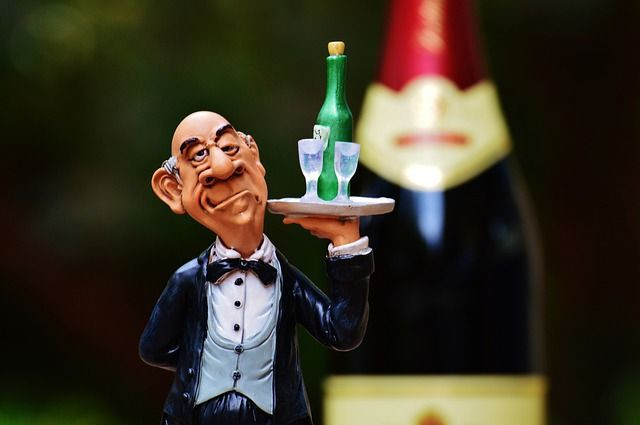The Psychology Of Eating: Waiter's Weight Influences Which Food, Drinks We Order

Your surroundings have a lot to do with the amount of food you eat. The lighting, music, and even your waiter can affect how much you indulge while dining. Now, a recent study published in the journal Environment and Behavior found a waiter’s weight may influence the quantity of food and drinks you order at a restaurant.
“In a novel approach, we showed that diners can be influenced by their surroundings in general and furthermore by their social interactions in particular,” wrote Tim Döring and Brian Wansink, in their study. “This study suggests that it does not take profound interactions between individuals to alter their eating behavior.”
The researchers observed a total of 497 interactions between diners and servers in 60 different full-service restaurants. The estimated body characteristics, like body mass index (BMI), of both the diners and the waiters were recorded. The amount of food and drinks ordered were also noted.
The findings revealed the waiter’s BMI influenced how much their customers ordered and ate. The higher a waiter’s BMI, the more meals the diners ordered, regardless of their own body type. For example, the diners were four times more likely to order dessert, and 18 percent more likely to order alcoholic drinks when their waiter had a BMI greater than 25. Anyone with a BMI between 25 and 29.9 is classified as overweight, but this may not apply to athletes because of increased muscularity, according to the Centers for Disease Control and Prevention.
This remained significant even after the researchers accounted for ethnicity, gender, weight, height, and age.
Doring and Wansink theorized the diners may have felt inclined to eat more food and beverages because a “heavy person sets a social norm.” In other words, if the waiter is overweight, diners assume it’s “OK” to overindulge because that is the “norm” in that specific environment.
A similar 2013 study found our eating behaviors are most influenced by the people we dine with. When groups of people ate together at a restaurant where they must say their food choice aloud, they were more likely to select items from the same menu categories. Brenna Ellison, author of the study and a University of Illinois Urbana-Champaign, believes this behavior is attributed to the idea of “fitting in”.
“We want to fit in with the people we’re dining with. It goes against the expectation that people will exhibit variety-seeking behavior; we don’t want to be that different from others" she said, in the news release.
These findings suggest there’s a human need to fit in, especially when it comes to shared experiences, like social eating. However, we should be more conscious of our surroundings when eating, and refrain from saying “I'll have what he's having” (unless it's a healthy choice). So, peer pressure (whether from a friend or a waiter) could be a good or bad thing, depending on what side of the health spectrum it falls.
Sources: Doring T and Wansink B. The Waiter’s Weight: Does a Server’s BMI Relate to How Much Food Diners Order? Environment and Behavior. 2015.
Ellison B and Lusk J. “I’ll have what he’s having”: Group ordering behavior in food choice decisions. Food Quality and Preference. 2013.



























